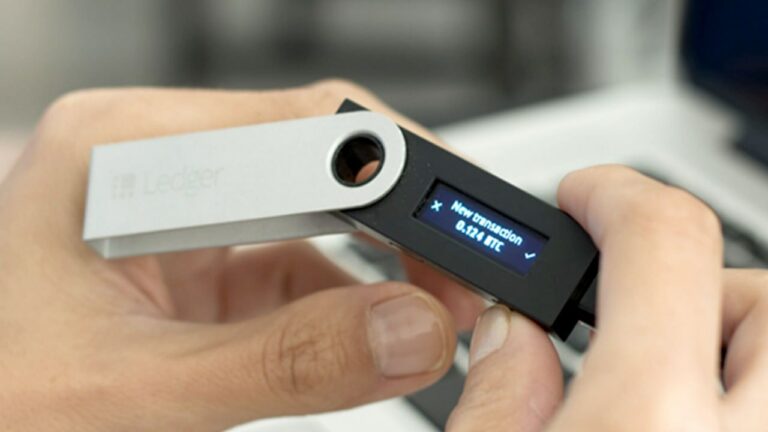Because the world of cryptocurrency moves so quickly, security is essential. A single entity does not control digital currencies, making asset protection more crucial than ever. Hardware wallets play a crucial role in this situation. Hardware wallets are physical devices that are designed to store cryptocurrency safely offline, making them an important tool for anyone concerned about protecting their digital assets. Immediate Migna is a buying site that lets you buy, sell, and trade coins. It is easy to use.
Understanding
Hardware wallets are small, portable devices that store private keys that you need to access and manage your cryptocurrency. Hardware wallets keep your keys offline, protecting them from online threats like hackers and malware, in contrast to software wallets, which store keys on internet-connected devices like computers or smartphones. This way of storing cryptocurrency offline is often called “cold storage,” and it’s one of the main things that sets hardware wallets apart from other ways to store cryptocurrency.
Hardware wallets are usually small, hard-to-hack gadgets with a screen and buttons for navigating. To send or receive cryptocurrency, you must connect the hardware wallet to a computer or smartphone via USB or Bluetooth and authorize transfers on the device itself. Even when a hardware wallet is connected to a computer, the private keys never leave the hardware wallet, protecting it from potential cyberattacks.
Security Features
To protect your cryptocurrency from theft and unauthorized access, hardware wallets employ several security measures. Encryption jumbles the private keys saved on the device, rendering them unreadable without the necessary permissions. To protect important data from hacking, hardware wallets also use safe features and specialized chips.
The ability to store money offline is another important security feature of hardware wallets. By keeping your private keys offline, hardware wallets make remote hacks much less likely to happen. An attacker can’t access your cryptocurrency without physical access to the hardware, even if they hack your computer or smartphone.
Two-factor verification (2FA), which requires you to verify your identity with a second method, like a PIN number or biometric scan, before allowing transfers, is also available in many hardware wallets. This adds an extra layer of security, making sure that even if someone takes your hardware wallet, they will still need to prove their identity before they can access your assets.
How Hardware Wallets Prevent Common Threats
Hardware wallets protect against common risks such as phishing, malware, and physical theft. Since the private keys never leave the device, phishing attempts that trick users into revealing their private keys or other personal information are virtually impossible with wallets.
Thus, malware attacks, which try to steal cryptocurrency by installing dangerous software on computers or smartphones, can’t work against hardware wallets because they are kept offline. Even if your computer has malware, the attacker will be unable to access your cryptocurrency until they physically have access to the hardware.
Certain wallet designs also reduce the likelihood of physical theft. When not in use, you can store these devices, which are small and easy to carry, in a secure location such as a safe or lockbox. In addition, many wallets have features that improve their security in the event of theft or loss, such as PIN safety and optional password encryption.
Setting up and using a hardware wallet.
It’s easy to set up, but make sure you carefully follow the manufacturer’s steps for the best security. Typically, you start by turning on the device and creating a new set of private keys. Usually, this means making a backup seed phrase. A backup seed phrase is a list of randomly created sentences that can help you find your keys if you lose or damage your wallet.
Installing the necessary software on your computer or smartphone and connecting the hardware wallet via USB or Bluetooth will be the next steps after setting up the device. Open new cryptocurrency accounts, send and receive payments, and manage your stocks using the device’s UI from there.
It’s important to follow security best practices when using a hardware wallet, such as keeping your backup seed phrase in a safe place and, if at all possible, setting PIN encryption and password protection. You should also regularly update the hardware and software on your wallet to protect yourself from potential dangers.
The Future Of Hardware Wallets
Hardware wallets will change along with the cryptocurrency world. Biometric security is an intriguing area of study because it uses unique physical traits like fingerprints or face recognition to verify the user’s identity. Manufacturers may increase security while simplifying the user interface by adding biometric identification to wallets.
Another potential improvement could involve integrating hardware wallets into decentralized finance (DeFi) networks. In the past few years, DeFi has become more popular because it offers a wide range of financial services that people don’t need from traditional banks or financial companies. Users can securely access and manage their decentralized assets directly from their wallet by combining hardware wallets with DeFi platforms, simplifying the user experience.
Last words:
sum up, hardware wallets are an important tool for anyone concerned with protecting their cryptocurrency assets. Some common threats that hardware wallets protect against are phishing attempts, malware, and physical theft. Their effectiveness is because they store your coins offline and have other security features like encryption. By adhering to best security practices and keeping abreast of the latest technological advancements, you can safeguard your digital wealth and feel confident in the safety of your assets.



